- Home
- Regan Walker
Racing with the Wind (Agents of the Crown) Page 7
Racing with the Wind (Agents of the Crown) Read online
Page 7
She had learned to bind broken ribs and patch up damaged bodies, and so she spoke up to Lady Huntingdon. “I want to go. I may be able to help.” She would not be left behind on this rescue effort.
“Oh, Mary,” said her hostess. “Are you sure you wish to be a part of this?”
“Yes,” she insisted. “I want to go with them.”
A carriage was brought, and she began to climb in. One of the earl’s men saw her and took umbrage. “See here, young lady. What are you about?”
She paused in her effort to reach the carriage seat. “I’m coming along. I might be able to help.”
“You would only get in the way,” the man scoffed. “We intend to bring Ormond and Arborn back here for the doctor.”
“It is best if we first try to tend them where they are, good sir. I am coming.”
Surprisingly, her confidence convinced him. “All right then, I’ll not fight you if you are determined, but hurry!”
Mary had barely closed the door before the carriage raced off after the men on horseback.
When they arrived in the clearing, Mary saw Ormond on the ground leaning against a tree. Although conscious, he was holding his right side, obviously in pain. Lord Arborn, an older man with thinning gray hair, was stretched out on the ground next to him. His eyes were closed.
Mary ran to Arborn’s side to check for a heartbeat and broken bones. His pulse was slow but steady, and his only injury appeared to be a deep gash on his forehead and the bump rising beneath it. The gash was bleeding profusely.
Ormond answered her unspoken question. “He hit his head as we fell.”
Mary spoke urgently. “We need to get something cold on this. Is there a creek nearby where I can get some water?”
One of the young men tending the horses spoke up before Ormond could reply. “Aye, m’lady, just yonder is the river.”
“Can you find a cloth to soak and bring to me?”
“Aye, m’lady, I’ll see to it.”
Mary hastily searched her surroundings for any plants that might be of use and found some chickweed near the edge of the clearing. Quickly she went to pick some, returned and dropped down next to Lord Arborn.
She glanced at Hugh and had to tear her eyes away from his sensual mouth, a mouth she very much wanted to kiss her again. “How are you doing?”
“I’m all right, Lady Mary. I think just my pride and ribs are injured.”
“I can help with that,” she said, crushing the chickweed in her hands.
“My pride or my ribs?”
“Your ribs, sir.” Her mouth twitched as she tried not to laugh.
His dark eyes never left her. “I look forward to your efforts, Lady Mary.”
Damn the man. He even had the temerity to stir her when he was injured. Her cheeks flushed with heat. The truth was she looked forward to touching him.
The hunt having ended with Lord Arborn’s fall, the men who’d not yet returned to the estate milled about, waiting to assist them. One of them walked by and called out, “Good show, Ormond. Gallant of you.”
“It was nothing,” Ormond called back. “I was just there at the right time. And it will be worth it just to have my Lady Mary here tend my injuries.”
Mary saw the other man wink at Ormond as he walked away. She decided to ignore that and concentrate on her more critical patient, since Ormond didn’t appear to be suffering overmuch. Not if he could make jokes like that.
Having cleaned Lord Arborn’s wound and staunched the bleeding, she applied the juice from the chickweed plant, took the cold cloths her young helper brought her and placed one atop the bump, which was quickly approaching the size of a goose egg. Then, satisfied she had done all that was possible, she motioned to the men standing nearby to take Lord Arborn to the carriage. Two of them lifted the unconscious older man and carried him to the waiting vehicle.
They returned for Ormond. After being helped to his feet, he slowly walked to the carriage and climbed in with their assistance. Mary went last.
Back at the estate, Mary followed the men into the house and gave instructions to the servants who hurried to make the injured men comfortable. Someone had already sent for a doctor. Since there was nothing much she could do for Lord Arborn, except to ask that they keep cold compresses on his head until the physician arrived, Mary went to check on Ormond.
He was lying in his bed, his shoulders propped up with pillows. Lord McGinnes stood near him, speaking in a low voice. A manservant near the door awaited instructions.
She knew it was not exactly proper for a young woman to be entering a man’s bedchamber, but Mary had no intention of letting propriety get in the way of any help she could provide. She addressed her desire to Lord McGinnes: “I’d like to verify his ribs are not broken and bind them for support.” To the manservant she said, “For that, I will need you to remove his shirt.”
Lord McGinnes seemed disturbed by her words. “Lady Mary, perhaps you should wait for the doctor. Harris has called for him. Surely a young lady like yourself should not be attending this.”
“It is not the first time I’ve seen an injured man’s chest, Lord McGinnes,” she replied, brushing off his concern. “Waiting for the doctor will only leave Ormond longer in pain.”
The manservant helped Ormond doff his shirt, and then Mary leaned over him to carefully probe his ribs for any breaks. Lord McGinnes dropped into a chair before the fireplace to watch.
Mary moved her fingers gently over his skin, and as she did she saw Ormond wince.
“I’m sorry. I know it must hurt,” she said as she tried to keep a medical mind. Touching his warm skin was turning out nothing like her other experiences helping injured men. His skin was like satin stretched over rock. Those muscles flexed each time her fingers moved across a rib, and the dark hair on his chest was fascinating, calling out for her to explore its texture. Suppressing her errant thoughts, she continued feeling for damage.
But her mind would not leave the thought of his naked chest. He bore several scars that dark chest hair did not hide. There was a short scar over his left nipple and a longer one down his right side just above his injured ribs. They appeared to Mary like healed wounds from a sword or a dagger. This was the muscled chest of a warrior, not that of a member of the nobility. Where had he been that he sustained such injuries?
She wondered but she did not ask. Continuing to probe his injured side she concluded, “I think you only have a few cracked ribs, Lord Ormond. They will be painful and you will be bruised, of course, but you were lucky. There are no full breaks that I can detect.”
“That is good news indeed,” he said, smiling.
Mary asked the manservant to find something to bind Ormond’s ribs. The man left and returned shortly with a long sheet of linen, which at her direction he began tearing into strips.
“That will do nicely. We need only provide a brace,” Mary offered by way of explanation.
She took a long strip, rolled it up and then began to unwind the cloth around Ormond’s chest. The manservant held him away from the pillows, and each time Mary moved closer her heartbeat accelerated. The heat coming off his chest mingled with the smell of horse, sweat and man, and her mind began to reel. Forcing herself not to think about that masculine scent, the swells of that muscular chest or the dusting of dark hair tapering down toward his breeches, she willed herself to continue the process. The manservant stepped back.
Ormond’s face reflected pain at the continued movement, though he smiled each time her head came close to his. Pretending not to notice, she wrapped the makeshift bandages around him several more times until she was certain his ribs were well supported. On the last wrap, her face passed very near to his.
Their eyes met. For a moment, neither moved. His proximity along with the warmth of his skin beneath her fingertips sent unexpected chills coursing through Mary, and for a moment it was as if they were back in the garden.
Lord McGinnes twisted in the chair behind her and shattered the spell. M
ary lowered her gaze and returned to her work, tying off the bandage. She stood and backed away from the bed, gathering up the unused torn strips. The thought of her fingers stroking Ormond’s naked chest would not leave her, however. She feared she could not look at him without blushing.
“Lady Mary, I can see you have this well in hand,” said Lord McGinnes with admiration. He turned to Ormond and said, “I expect you’ll be having dinner in your room.”
“I think I might just do that,” he replied to McGinnes, but his eyes were on Mary.
* * *
Hugh had experience with broken ribs and knew his were only bruised or cracked, but he would not have denied Mary the opportunity to touch him for the world. Hugh had tried to keep his lap covered with the remnants of his shirt so that she would not notice his arousal. In spite of the pain from his ribs, his body had responded the moment her cool fingers touched him. Added to this sweet torture, her gardenia scent set off tremors throughout his body. He could not seem to take his eyes off her face.
The urge to pull her onto the bed was nearly overwhelming. Watching her now, he thought she might be as affected as he, and that was pleasing.
“I think I could benefit from a brandy about now,” he said to no one in particular.
McGinnes chuckled. “A most reasonable request, Ormond. Could use one myself.”
Without being asked, the manservant hurried off to retrieve the drinks.
Mary glanced at Hugh, not commenting on his request for alcohol. “I’ll see you get some willow bark tea with your dinner. It will help with the pain and the swelling.”
“Thank you, Lady Mary. And thank you for tending my ribs. They feel better.”
Lady Huntingdon entered. “Good afternoon, Lord McGinnes, Lady Mary. How’s our hero?”
“Ah, Lady Huntingdon,” McGinnes said. “You’ve missed a grand display of medical talent.”
Lady Huntingdon raised her brow and shifted her gaze to Hugh and to the bandages covering his ribs. “You do seem to know what you’re doing, Lady Mary. Where did you learn this?”
Mary stood quietly for a moment before she explained, “I have spent a great deal of time around horses and their riders. Given my father’s accident, I took a particular interest in learning what might be helpful.”
“Remarkable,” Lady Huntingdon said. “Well done. Well done, indeed. Can I be of any assistance?”
Mary shook her head. “No, it is done—at least all I can do for him. Anything more will have to await the doctor.”
Lady Huntingdon glanced at Hugh. “I’m thinking you are not minding this, Lord Ormond.”
“There are compensations,” he agreed with a wink. He saw color rise in Mary’s cheeks.
The butler appeared, offering McGinnes and Ormond each a brandy from a small silver tray. “I understand you asked for this, my lords.”
“Ah, Harris.” Hugh sighed. “Efficient as ever. You have my gratitude. The pain is less for Lady Mary’s ministrations, but this will certainly help.” He accepted the offered glass.
* * *
Mary watched as, following on the heels of the butler, there came a group of men to congratulate Ormond on his efforts to rescue Lord Arborn, each recounting what they’d personally seen of the deed. Many accolades were tossed his way, and Mary could see true respect in the men’s eyes. In response to Lord McGinnis’s exclamation of “’Twas an amazing save!” came shouts of “Hear, hear!”
At last the men departed, and Mary gathered her things to follow Lady Huntingdon out as well. As the two neared the door, Mary paused and looked back. “Are you a hero then, Lord Ormond?”
Amusement crossed his face and in a soft voice he said, “No, but I don’t mind if you think so.”
Mary ignored the comment, especially as he grinned at Lady Huntingdon, who’d looked back when he made the remark. Then the earl’s wife leaned back into the room and said, “I believe it’s the only conclusion one can come to after all those men raved about your courageous dive, shielding Lord Arborn at great risk to yourself. It seems a miracle to me the old lord isn’t dead, taking a fall like that.”
Hugh said nothing. A faraway look crossed his face, one that Mary was hard pressed to decipher.
Lady Huntingdon wished Ormond well, thanked Mary and left. Mary followed, but just as she stepped through the open door, he said in a more serious voice, “Thank you, Lady Mary. Truly. It means much that you saw fit to tend me.”
Not trusting herself to speak, Mary glanced back over her shoulder, nodded once and hurried away.
* * *
Doctor Everard arrived a short while later. He first examined Lord Arborn, who by this time was awake, before coming to see Hugh. The physician predicted a full recovery for Arborn but cautioned it would take some time to know for certain, as the man still exhibited signs of confusion. When the doctor finally assessed Hugh’s ribs, he agreed they were likely only cracked and complimented the job Lady Mary had done.
“It seems I’m not as needed here as I would have been without the young lady.”
“And glad I am of that,” Hugh said, still reclining on the bed. “It’s a bit unusual to find a young woman like that who is willing to minister to the injured. How many debutantes do you know can tend wounds?”
“I’ve not seen any,” agreed the doctor, “but I understand this young woman is most unusual in many ways.”
Hugh couldn’t possibly agree more.
* * *
Mary did not return to visit Ormond as he took dinner in his room. Instead, she endured the attentions of Lord McGinnes and Arthur Bywood at the evening meal. Bywood retold the story of the hunt and the accident repeatedly, while the older man talked about his horses. Fortunately, Mary and the earl eventually found an issue to debate.
“You must see the value in all young women knowing more than a few herbal remedies, Lord Huntingdon.”
“Certainly you were proof of that today, Lady Mary,” her host replied. “But do you really think many young women would want to add those skills to the list of talents they must already acquire to hope for a husband?”
“No, I don’t expect they would. But my point is they should have the choice.”
The earl smiled, fondly shaking his head. “I daresay, Lady Mary, you are one of the most interesting young women my wife and I know. I don’t think I need tell you that you are a lot like your father. He always had a cause, and that cause was usually ahead of its time. I do so miss the man.” Huntingdon stared off into the distance. “He was one of my closest friends.”
Unbidden to Mary’s mind came her earliest memory, a tall man with sandy hair and green eyes, smiling at her as he lifted her onto her first horse. She had grown up without knowing the man she was told she so resembled, and without the painting of him hanging in the library at Campbell Manor she would never have been able to recall his features. Looking at it always brought tears to her eyes. She could not remember her father’s voice any longer, though, and that saddened her.
“I miss him, too.” I miss the family I never had.
When dinner was finished and the men rose to take their brandy in the library, Mary thought of Ormond and was tempted to look in on him. In her mind she saw him bare-chested again, lying against the pillows, and decided it would be best if she didn’t. But, unscrupulous rake or not, when she went to bed it was with some regret she had not stopped in to see him.
* * *
The next morning saw an exodus. Mary watched the guests depart as she stood chatting with Lady Huntingdon in front of the estate. Ormond came out slowly, a servant carrying his luggage, which was loaded onto a carriage provided by the earl since Ormond could not ride his horse. It was tied on behind.
“Are you returning to London, Lord Ormond?” Lady Huntingdon asked cheerfully.
“Yes,” he replied. “I have some pressing business. Thank you for a…most eventful weekend.”
“You’re teasing me, Lord Ormond,” his hostess answered with a smile. “You were the one wh
o provided the entertainment.”
He chuckled good-naturedly. “I suppose I did.”
Mary couldn’t help but admire his roguish smile and easy manner, for she believed they masked the pain he must still be feeling from his injured ribs. His dark eyes glimmered with amusement as he bantered with Lord Huntingdon’s wife, then at last he carefully climbed into the waiting carriage. Once inside, he popped his head out through the window.
Mary smiled. “I wish you a quick recovery, my lord.”
“Thank you,” he replied, “for your kind attention to an injured man. And for the good conversation. I enjoyed it.” He said the last with a wolfish smile, grinning like a boy who’d just stolen a fresh baked tart from the kitchen. Then he was gone, leaving Mary alone with her thoughts.
Almost immediately, she experienced a hollow feeling that displeased her. She did not want to miss the man. She would not miss the man. He was a dissolute and a rake, and she reminded herself, dangerous.
While waiting for her carriage, she walked alone in the garden…and found herself drawn to the alcove where he’d kissed her. The feel of his lips, his scent—that rich, masculine smell that was his alone—returned to haunt her. Visions of his smile and his long fingers upon the piano keys flitted through her mind. Though the man aggravated her, she wanted to be wrapped in his arms again.
This has to stop! She was thinking about him overmuch. If she didn’t distance herself, she really would be in danger of joining the list of women who found the Marquess of Ormond irresistible. That would never do.
Mary walked idly back to the mansion, her thoughts drifting toward what she hoped lay ahead. Paris. During her last trip to France, she had memorized the letter on the minister’s desk because it contained a name she’d once heard her uncle mention to an associate. He did not know she’d overheard him when he said, “This is the work of the Nighthawk, and we can be glad of it.”
Who was the Nighthawk? She had wondered at the time. Seeing the same word in French in the note open on the desk next to her, the coincidence was too great. She’d memorized what she’d read and provided the exact language to her uncle, certain it must be important. He had thanked her. And although he’d scolded her for getting involved, she could see he was pleased. And that was before she’d seen the article in the Times.

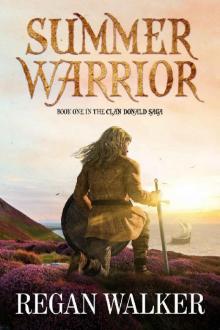 Summer Warrior (The Clan Donald Saga Book 1)
Summer Warrior (The Clan Donald Saga Book 1)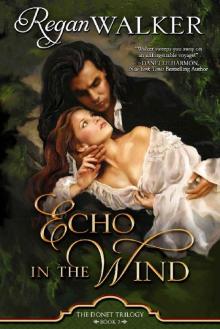 Echo in the Wind
Echo in the Wind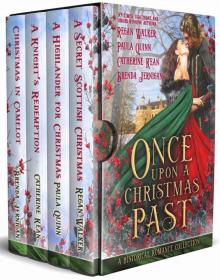 Once Upon a Christmas Past
Once Upon a Christmas Past A Secret Scottish Christmas (Agents of the Crown Book 4)
A Secret Scottish Christmas (Agents of the Crown Book 4)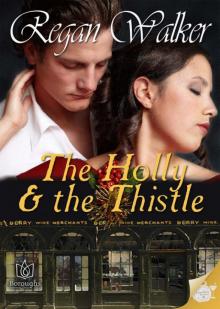 The Holly and the Thistle
The Holly and the Thistle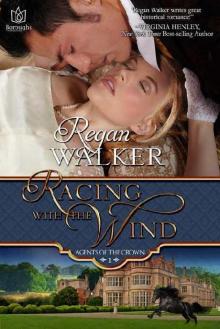 Racing with the Wind (Agents of the Crown)
Racing with the Wind (Agents of the Crown)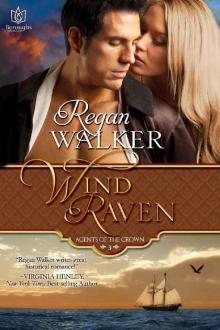 Wind Raven (Agents of the Crown)
Wind Raven (Agents of the Crown)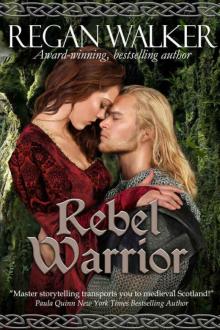 Rebel Warrior (Medieval Warriors #3)
Rebel Warrior (Medieval Warriors #3)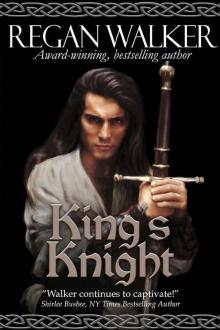 King's Knight (Medieval Warriors Book 4)
King's Knight (Medieval Warriors Book 4)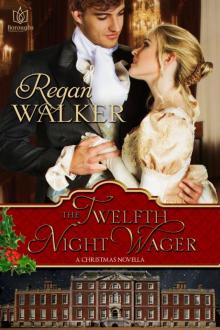 The Twelfth Night Wager
The Twelfth Night Wager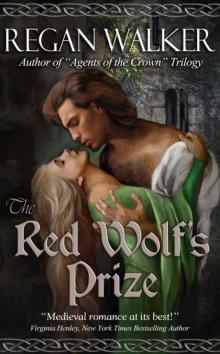 The Red Wolf's Prize
The Red Wolf's Prize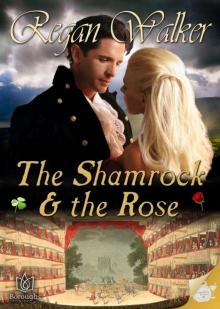 The Shamrock & the Rose
The Shamrock & the Rose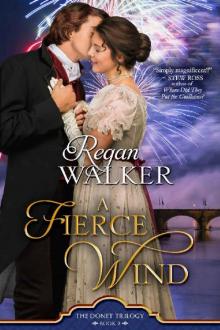 A Fierce Wind (Donet Trilogy Book 3)
A Fierce Wind (Donet Trilogy Book 3)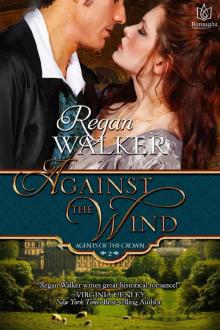 Against the Wind (Agents of the Crown Book 2)
Against the Wind (Agents of the Crown Book 2)